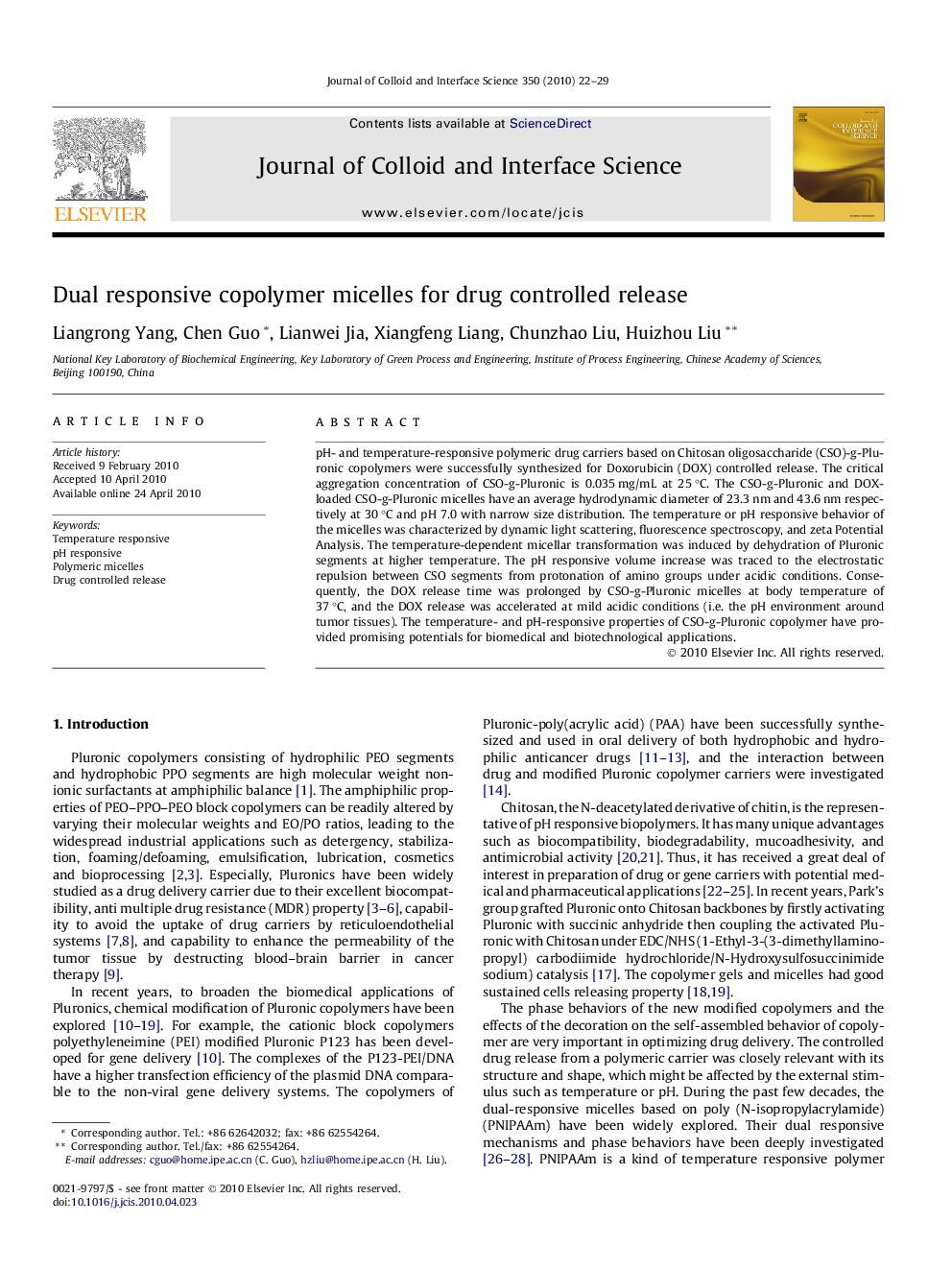| Article ID | Journal | Published Year | Pages | File Type |
|---|---|---|---|---|
| 609462 | Journal of Colloid and Interface Science | 2010 | 8 Pages |
pH- and temperature-responsive polymeric drug carriers based on Chitosan oligosaccharide (CSO)-g-Pluronic copolymers were successfully synthesized for Doxorubicin (DOX) controlled release. The critical aggregation concentration of CSO-g-Pluronic is 0.035 mg/mL at 25 °C. The CSO-g-Pluronic and DOX-loaded CSO-g-Pluronic micelles have an average hydrodynamic diameter of 23.3 nm and 43.6 nm respectively at 30 °C and pH 7.0 with narrow size distribution. The temperature or pH responsive behavior of the micelles was characterized by dynamic light scattering, fluorescence spectroscopy, and zeta Potential Analysis. The temperature-dependent micellar transformation was induced by dehydration of Pluronic segments at higher temperature. The pH responsive volume increase was traced to the electrostatic repulsion between CSO segments from protonation of amino groups under acidic conditions. Consequently, the DOX release time was prolonged by CSO-g-Pluronic micelles at body temperature of 37 °C, and the DOX release was accelerated at mild acidic conditions (i.e. the pH environment around tumor tissues). The temperature- and pH-responsive properties of CSO-g-Pluronic copolymer have provided promising potentials for biomedical and biotechnological applications.
Graphical abstractThe CSO-g-Pluronic copolymer micelles synthesized via a facile Dess–Martin activation method represents an attractive temperature and pH responsive volume transition property.Figure optionsDownload full-size imageDownload high-quality image (177 K)Download as PowerPoint slide
